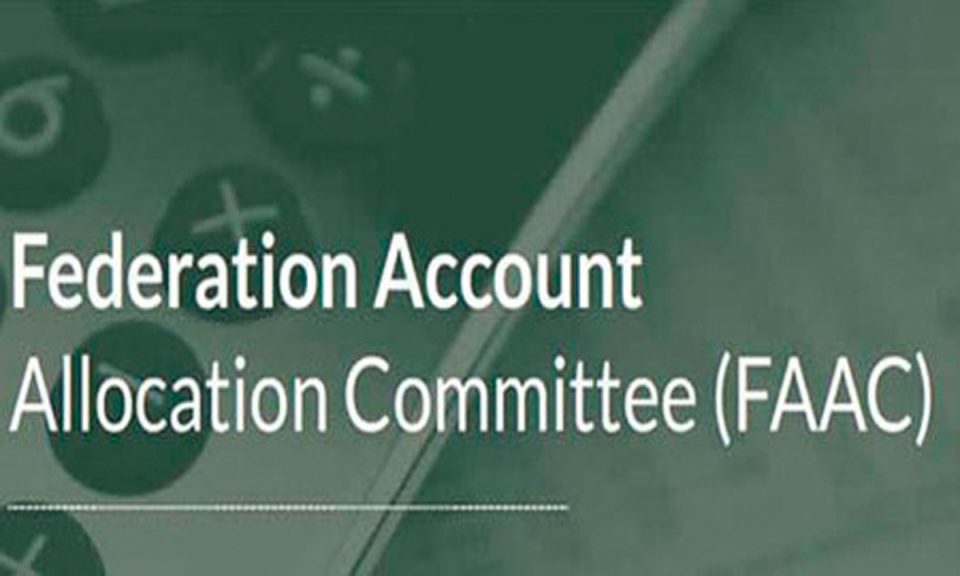The total debts owed by the Nigerian National Petroleum Company Limited (NNPCL) to the federal and state governments have hit N1.055 trillion in the first six months of 2022, new data from the national oil company has indicated.
Information obtained on the last presentation to the Federation Account Allocation Committee (FAAC), indicated that the company’s inability to pay any money this year increased the debts to over N1 trillion.
Asked about what would happen to the backlog of debts owed the federation on the day the NNPC officially unveiled its new logo and turned commercial in July, NNPCL Group Chief Executive Officer (GCEO), Mr. Mele Kyari had stated that the old NNPC owed the debts and not the new company.It was still unclear whether the president, governors and local government heads, who jointly own the federation account would agree to wipe off the debts since the national oil firm has now been commercialised.
The NNPCL had blamed the current subsidy regime which was expected to gulp N4 trillion this year and its inability to produce its Organisation of Petroleum Exporting Countries (OPEC) quota, which fell to 1.083 million barrels per day in July, for the company’s inability to meet its obligation. Nigeria’s allocation for the month was 1.8 million bpd.
Also, while the total sum owed the federation should be N736.602 billion from January to June, according to a THISDAY analysis of the data, given a monthly budgeted remittance of N122.767, there was no explanatory notes as to how the deficit jumped to the N1.055 trillion figure in June.
For the entire year, the company was supposed to pay N1.473.20 trillion to the federation account. However, it’s unlikely that a kobo would be paid, given the default in payment trend which began last year.
Some Nigerian states with low Internally Generated Revenue (IGR), which are mostly badly hit when the FAAC remittances decline, now owe their workforce several months, according to reports from the states.
However, with a major chunk of NNPCL’s monthly revenue now being channeled to the payment of fuel subsidy.A THISDAY report last month had shown that FAAC has been relying heavily on the revenue from the Federal Inland Revenue Service (FIRS) for its monthly sharing to the three tiers of government.
From 2021, when the national oil firm’s revenues declined massively, the financial records of the FIRS’ contributions to FAAC showed that it contributed a total of 59.45 per cent to the federation. This meant that out of the total of N8.912 trillion to the three tiers of government last year, N5.298 trillion was contributed by the federal revenue collecting agency.
The trend continued in the first five months of 2022 as the NNPC’s contribution was still weighed down by the fuel subsidy burden and inadequate oil production.But a further review of the NNPCL’s latest data further indicated that the company spent N8.352 billion during the month under review on pipelines security and maintenance.
The amount that the NNPCL spent in a month was almost the entire budgeted sum for the year for the purpose, which should be N8.792 billion for the 12 months of 2022.
However, the massive jump in security and maintenance costs may not be unconnected with the renewed moves by the authorities to rein in record oil theft in the Niger Delta.The government recently deployed more troops to the region to curb the menace. Last Saturday, Kyari had announced cash rewards for anyone who blows the whistle on oil thieves and vandals, disclosing that he was personally spearheading the move to ensure that the identity of the whistle-blowers is kept under wraps.
He had also announced that the NNPCL had deployed cameras to monitor its assets real time as well as the disclosure of the launch of an application to ensure the menace is brought to the barest minimum.But while the challenge in the oil and gas industry continue to swell, constraining Nigeria’s ability to fully enjoy rising prices, Saudi Aramco announced yesterday its financial results for the second quarter of 2022, with revenues rising by 90 per cent year-on-year (YoY). It also declared a dividend of $18.8 billion to be paid in the third quarter.
The results set a new quarterly earnings record for the company since its Initial Public Offering (IPO) in 2019, and were primarily driven by higher crude oil prices and volumes sold as well as higher refining margins.
Aramco achieved a record quarterly and half-year net income of $48.4 billion in the second quarter and $87.9 billion in the first half of 2022, compared to $25.5 billion and $47.2 billion, respectively, for the same periods in 2021. Free cash flow increased by 53 per cent to $34.6 billion in the second quarter and was $65.2 billion during the first half of 2022, compared to $22.6 billion and $40.9 billion, respectively, for the same periods in 2021, according to a statement from the national oil firm.
Also, its capital expenditure increased by 25 per cent to $9.4 billion in the second quarter and by 8 per cent to $16.9 billion for the first half of 2022, compared to the same periods in 2021.“Our record second-quarter results reflect increasing demand for our products — particularly as a low-cost producer with one of the lowest upstream carbon intensities in the industry.
“While global market volatility and economic uncertainty remain, events during the first half of this year support our view that ongoing investment in our industry is essential — both to help ensure markets remain well supplied and to facilitate an orderly energy transition,” Aramco’s President and CEO, Amin Nasser, said.He noted that he expected oil demand to continue to grow for the rest of the decade, despite downward economic pressures on short-term global forecasts.




